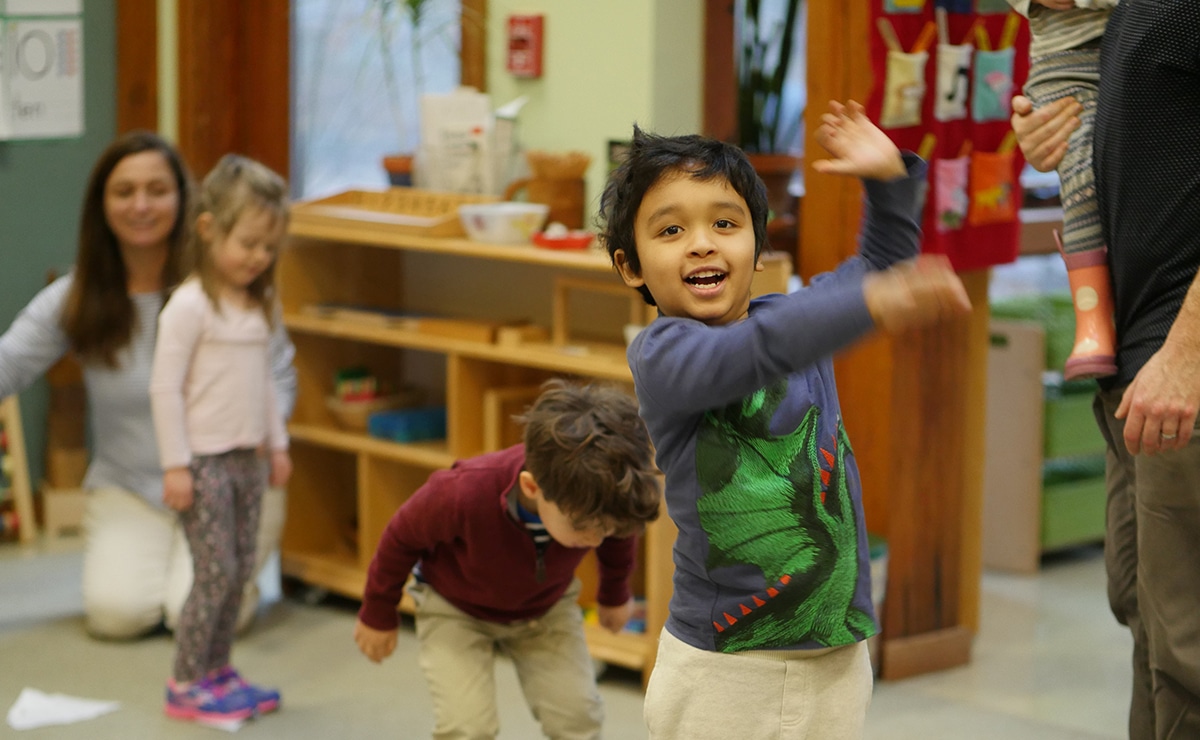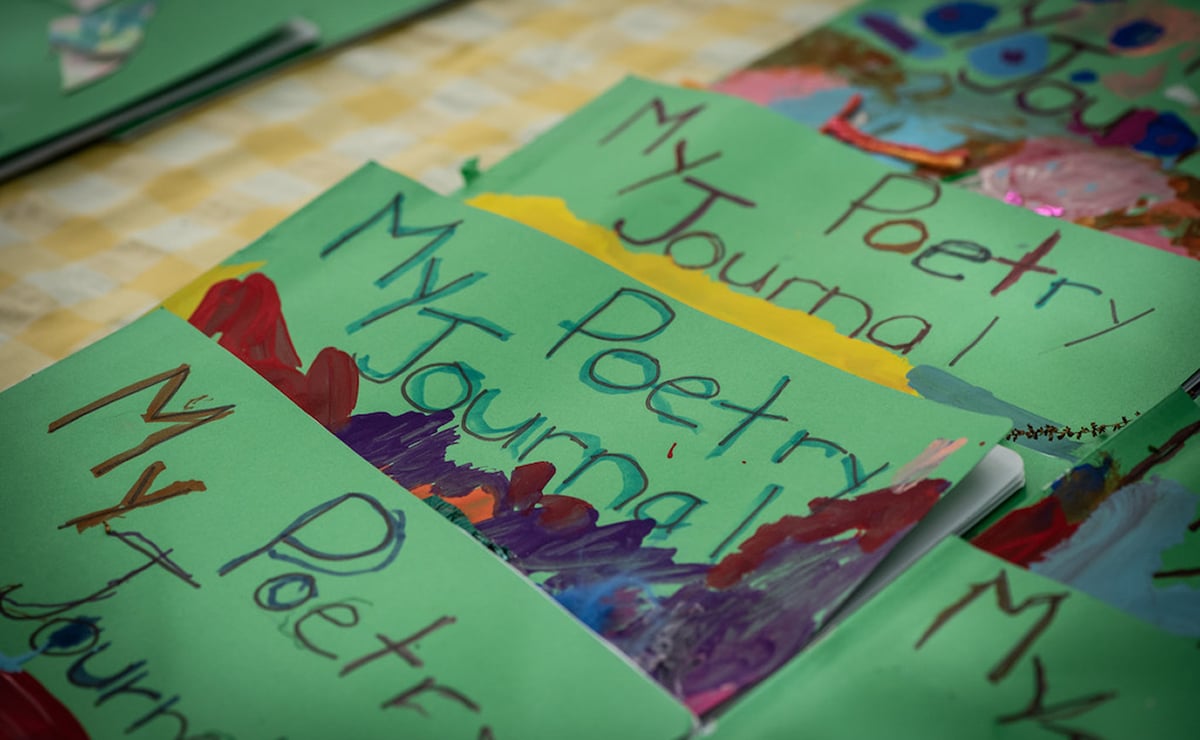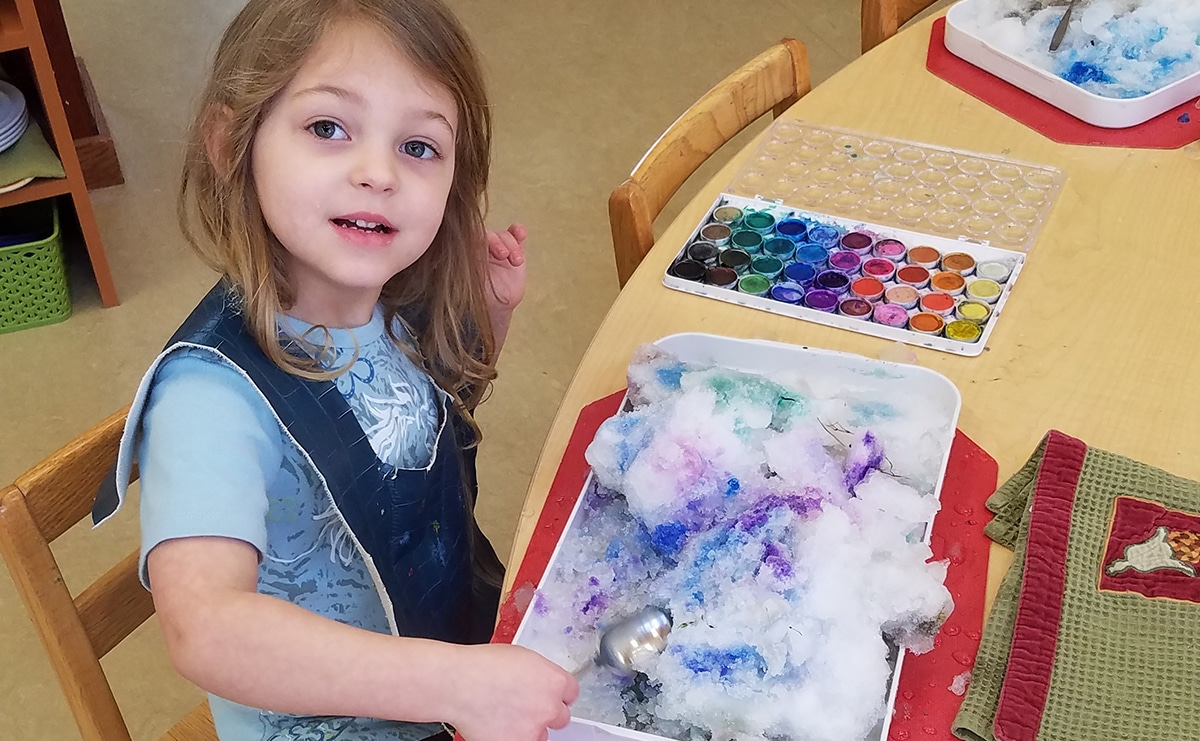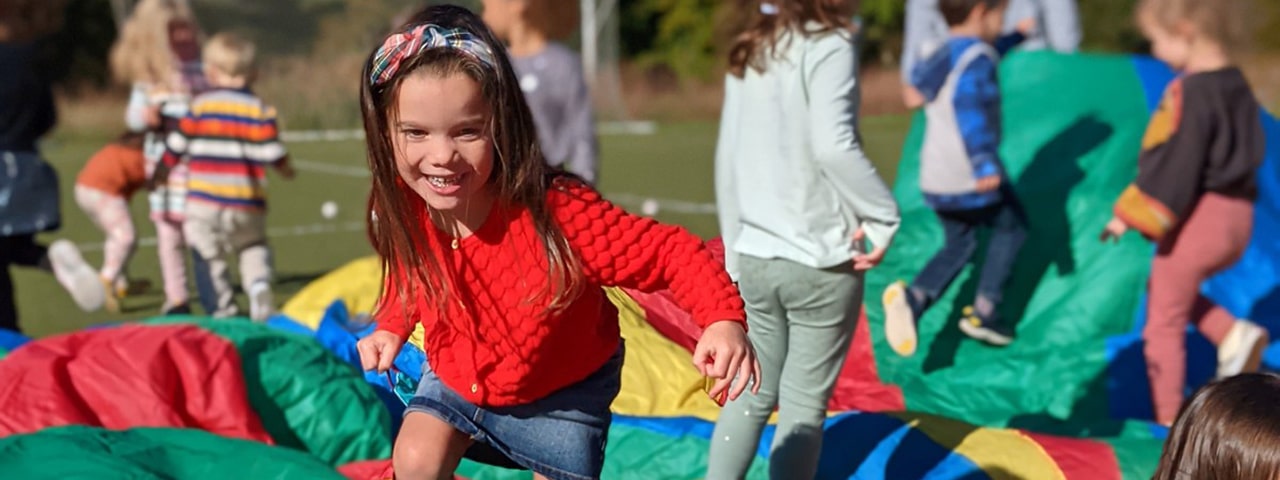
Preschool
Preschool is a vital developmental stage, when your child will build key skills that set the foundation for years of physical, emotional, social, and cognitive development. At Willow, we understand that the best way to nurture your child’s growth at this age is through creative play. That’s why we have structured our classroom so preschoolers can learn about themselves, collaborate with others, and take steps toward independence—in a play-based, joy-filled environment.
Willow’s preschool philosophy combines the best elements of the Waldorf, Montessori, and Forest School approaches. We intentionally take the stress out of academics to foster a love for learning, right from the start. Willow teachers create ample opportunities for children to use their imagination through recess, art, gardening, and music. Students are encouraged to choose activities guided by our comprehensive Virtues Program and visualize real-world connections. With outdoor learning a priority at Willow, your preschooler will spend lots of time outside, learning not just about nature but from nature—and develop important skills like responsible risk taking, confidence, and self-esteem.
Explore more about our program
Play-Based Learning
Active learning through play is important at Willow. For younger children, work is shown and developed through play. It is a critical part of their brain development and allows them to nurture and deepen relationships. Play-based learning takes many forms in our preschool classroom, from playing games and building forts during recess to gardening, baking, dramatic storytelling, music, dance, and more. This gives children plenty of opportunities to develop their interests in a teacher-supported, unhurried environment.
Writer’s Workshop
At Willow, we follow Columbia’s Teacher College approach to teaching writing in a workshop model. This model gives children the opportunity to be creative, take ownership in their topics and themes, and practice storytelling by thinking, planning, drawing, and sharing. Starting this method early is critical to developing the skills that will help our children as writers and readers as they get older.
Learning Centers
Willow’s preschool classroom is designed to allow students to work at their own pace and self-direct their learning throughout the day, giving teachers more one-on-one time with each student. The activities are not only fun, but they give our students the chance to develop their concentration and focus, fine motor skills and finger strength, hand-eye coordination, creativity, and more. These stations—sandbox & water play, multiple sensory tables, library center, art shelf, dramatic play & block building, baking & cooking, nature table, and music basket—teach children accountability and help develop their confidence as they work towards their goals.
Take a Deeper Dive into our Curriculum
The Age 3 & 4 curriculum at The Willow School develops strong social and emotional skills in a joyful and nurturing environment.
- In language arts, preschoolers are taught to verbalize their feelings and needs and to follow multi-step directions. Writing skills develop through dramatic play and labeling activities. Journal work and Handwriting Without Tears are typically introduced during the second preschool year.
- Students are introduced to math in small groups with individualized instruction. Beyond recognizing numbers and counting, students learn sorting, pattern recognition, odd and even numbers, more than/less than/equal to, and symmetry.
- The science program encourages a love for nature and a curious mind. Children learn about plants and animals by participating in hands-on activities, including gardening and exploring the woods. The outside world becomes a classroom where they use their five senses to see first-hand how things change over time.
- In social studies, students develop a sense of community and a connection to others. Their world expands as they move from self-care to learning about the Earth.
- Art and music not only make school fun, they also support competencies necessary in all other subjects, including development of fine motor skills and following directions.
- Age 3 & 4 students are awakening their senses to new sounds. At Willow, they are introduced to world languages in the same way they would learn their own mother tongue. Preschoolers have one semester of French and one semester of Spanish each year.
By the end of preschool, young Willow School students demonstrate these and many other skills:
- An increased ability to work with others and follow directions; the ability to verbalize their needs and wants in social groups.
- Age-appropriate writing skills, supported by increased focus and hand-eye coordination.
- Basic numeracy, including counting one to 10 and beyond and the basics measuring, money, and time.
- An interest in nature and being comfortable and curious in the out-of-doors.
